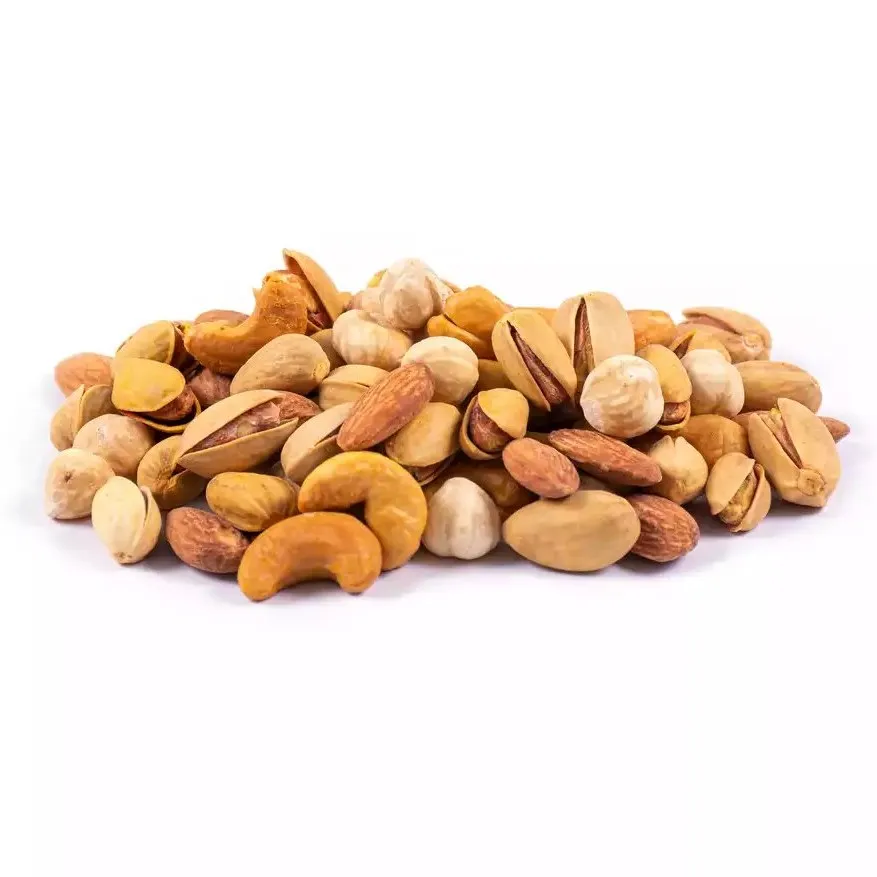The cashew nut industry plays a crucial role in the economy of Karnataka, an Indian state known for its agriculture-focused economy. Karnataka is one of the leading cashew-producing states in India, contributing significantly to the national and international market. This article aims to provide a detailed summary of the cashew nut industry in Karnataka, covering its production, processing, marketing, export, challenges, and opportunities.
1. Cashew Nut Production:
Karnataka boasts favorable climatic conditions and suitable soil for cashew cultivation, leading to abundant production. The primary cashew-growing regions in Karnataka include Udupi, Dakshina Kannada, Uttara Kannada, and Belagavi. The state registers substantial cashew cultivation across both small and large-scale farmers, contributing to overall production volume.
2. Cashew Processing:
Processing is a crucial stage in the cashew nut industry, ensuring quality, taste, and marketability. Karnataka houses numerous cashew processing units, particularly in Mangaluru, Udupi, and Karwar. These units employ modern techniques and machinery to shell, clean, roast, and package cashews. The state’s processing units strive for consistency in quality and compliance with international standards.
3. Market and Export Perspective:
Karnataka’s cashew nuts are in high demand across domestic and global markets due to their quality and distinct taste. The state’s extensive network of wholesalers and retailers ensures a steady supply chain to cater to the domestic market. Internationally, Karnataka’s cashews are exported to countries like the United States, the United Arab Emirates, European Union countries, and Africa. The Karnataka Cashew Manufacturers Association (KCMA) plays an instrumental role in promoting the state’s cashews globally and securing export contracts.
4. Challenges in the Industry:
Despite its growth and potential, the cashew nut industry in Karnataka faces several challenges. The sector grapples with inadequate infrastructure like storage facilities, transportation, and lack of cold chain infrastructure. This creates hurdles in maintaining quality and meeting market demand, particularly for exports. Additionally, fluctuations in raw cashew prices, rising production costs, and low productivity in some regions pose challenges to the industry’s overall growth.
5. Government Initiatives and Policies:

The Karnataka government understands the importance of the cashew nut industry and has implemented several initiatives to support its growth. It focuses on providing subsidies, promoting cashew cultivation through various schemes, and improving infrastructure facilities. The state government also encourages farmers to adopt modern farming techniques and supports research and development efforts in the industry.
6. Value Addition and Product Diversification:
To further boost the cashew nut industry, Karnataka is emphasizing value addition and product diversification. This involves promoting the production of cashew kernels, cashew shell oil, cashew apple pulp, and other by-products. Additionally, the state is exploring opportunities for processing and marketing flavored and value-added cashew products like roasted cashews, cashew butter, and cashew-based desserts, contributing to higher profitability and market reach.
7. Employment Generation:
The cashew nut industry in Karnataka is a significant source of employment, particularly in rural areas. It provides opportunities for employment across various stages of the value chain, including cultivation, processing, packaging, and marketing. The industry’s growth positively impacts the livelihoods of thousands of farmers, workers, and small-scale entrepreneurs, thereby contributing to rural development.
8. Promotion of Organic Cashews:
With increasing global demand for organic products, Karnataka is actively promoting the cultivation and certification of organic cashew nuts. This niche market offers greater price realization and builds a positive image for the state’s cashew industry. Several farmers and processing units have adopted organic practices, attracting the attention of health-conscious consumers worldwide.
9. Research and Development Efforts:
Recognizing the importance of research and development, the state government collaborates with agricultural universities and institutes to enhance cashew cultivation techniques, increase productivity, and develop disease-resistant cashew varieties. These efforts are aimed at addressing challenges faced by farmers and ensuring sustainable growth of the cashew nut industry in Karnataka.
Conclusion:
The cashew nut industry in Karnataka is a crucial part of the state’s agricultural sector. With favorable climatic conditions, extensive cultivation, modern processing units, and a robust export market, Karnataka has become a prominent player in the cashew industry. Despite challenges, the government’s initiatives, value addition efforts, and emphasis on research and development are driving the industry’s growth and opening new opportunities. As the industry expands, it continues to contribute to the state’s economy, create employment, and position Karnataka as a major player in the cashew market globally.I. Cashew Nut Production and Processing in Karnataka

Cashew nut production in Karnataka has witnessed significant growth over the years due to favorable climatic conditions and suitable soil. The state is known for its extensive cashew cultivation, with major production centers in Udupi, Dakshina Kannada, Uttara Kannada, and Belagavi. Cashew processing units are concentrated in cities like Mangaluru, Udupi, and Karwar, where modern techniques and machinery are employed for processing activities such as shelling, cleaning, roasting, and packaging. These processing units play a crucial role in ensuring the quality and marketability of cashew nuts, meeting both domestic and international standards.
II. Market Demand and Export Opportunities
Karnataka’s cashew nuts are highly sought after in both domestic and international markets. The state’s cashews are known for their superior quality and distinct taste, attracting a wide range of buyers. Within India, Karnataka supplies cashew nuts to wholesalers and retailers across the country, ensuring a steady supply chain. The state’s cashew nuts are also exported to countries such as the United States, the United Arab Emirates, European Union countries, and Africa. The Karnataka Cashew Manufacturers Association (KCMA) actively promotes the state’s cashews globally and strives to secure export contracts, further expanding market reach and demand.
III. Challenges in the Cashew Nut Industry
Despite its growth and potential, the cashew nut industry in Karnataka faces several challenges. Inadequate infrastructure such as storage facilities and transportation systems poses hurdles in maintaining the quality of cashew nuts and meeting market demand, especially for exports. Fluctuations in raw cashew prices and rising production costs also impact the industry’s profitability. Additionally, some regions within Karnataka experience low productivity levels, which need to be addressed to ensure sustained growth and competitiveness in the sector.
IV. Government Initiatives and Policies
Recognizing the importance of the cashew nut industry in Karnataka’s economy, the state government has implemented various initiatives and policies to support its growth. These include providing subsidies to farmers, promoting cashew cultivation through schemes, improving infrastructure facilities, and encouraging the adoption of modern farming techniques. The government also supports research and development efforts to enhance productivity and develop disease-resistant cashew varieties. These initiatives aim to address the challenges faced by farmers and further the growth potential of the cashew nut industry in Karnataka.
V. Value Addition and Product Diversification
To enhance the cashew nut industry’s profitability and market reach, Karnataka is focused on value addition and product diversification. This involves promoting the production of cashew kernels, cashew shell oil, and cashew apple pulp, among other by-products. Cashew kernels, in particular, command higher prices in the market, making them an attractive avenue for value addition. Moreover, Karnataka is exploring opportunities to process and market flavored and value-added cashew products such as roasted cashews, cashew butter, and cashew-based desserts, catering to the evolving preferences of consumers and boosting the industry’s growth.
VI. Employment Generation and Rural Development
The cashew nut industry in Karnataka plays a vital role in employment generation, particularly in rural areas. From cultivation to processing, packaging, and marketing, the industry offers employment opportunities across the value chain. Thousands of farmers, workers, and small-scale entrepreneurs benefit from the sector’s growth, contributing to rural development and improving livelihoods.

VII. Organic Cashews: Expanding Market Reach
With the increasing global demand for organic products, Karnataka is actively promoting the cultivation and certification of organic cashew nuts. This niche market offers greater price realization and builds a positive image for the state’s cashew industry. Several farmers and processing units have adopted organic practices, attracting the attention of health-conscious consumers worldwide. This focus on organic cashews further expands market reach and adds value to the cashew nut industry in Karnataka.
VIII. Research and Development for Sustainability
Given the importance of research and development, the Karnataka government collaborates with agricultural universities and institutes to enhance cashew cultivation techniques, increase productivity, and develop disease-resistant cashew varieties. These efforts aim to address the challenges faced by farmers, promote sustainable practices, and ensure the long-term growth and competitiveness of the cashew nut industry in Karnataka.
IX. Collaboration and Networking
The cashew nut industry in Karnataka thrives on collaboration and networking among different stakeholders. The state government, industry associations, farmers, processors, exporters, and researchers work together to address challenges, share knowledge, and explore new opportunities. Collaboration ensures a robust supply chain, supports innovation, and facilitates the growth of the industry in a sustainable manner.
X. Potential for International Partnerships
Karnataka’s cashew nut industry presents opportunities for international partnerships and collaborations. The state’s cashews are already exported to several countries, but there is potential for further expanding the global market presence. International businesses in the food processing, distribution, and retail sectors can explore partnerships with Karnataka-based companies to source cashew nuts and tap into the growing demand for high-quality cashews.
XI. Future Outlook: Meeting Consumer Trends
The cashew nut industry in Karnataka is well-positioned to meet evolving consumer trends. Consumers around the world are increasingly seeking healthy, natural, and sustainably sourced food products. Karnataka, with its focus on organic cashews and value-added products, can cater to these preferences. By capitalizing on innovation, consumer insights, and market trends, the industry can strengthen its market presence and drive future growth.
XII. Conclusion

The cashew nut industry in Karnataka holds immense importance in the state’s agricultural sector. With its abundant production, modern processing units, export opportunities, and government support, Karnataka has established itself as a leading player in the cashew industry. Challenges such as inadequate infrastructure and low productivity need to be addressed, but with initiatives for value addition, research and development, and collaboration, the industry has significant potential for growth and expansion. Karnataka’s cashew nut industry not only contributes to the state’s economy but also supports rural development and employment generation, making it a promising sector with a bright future ahead.









